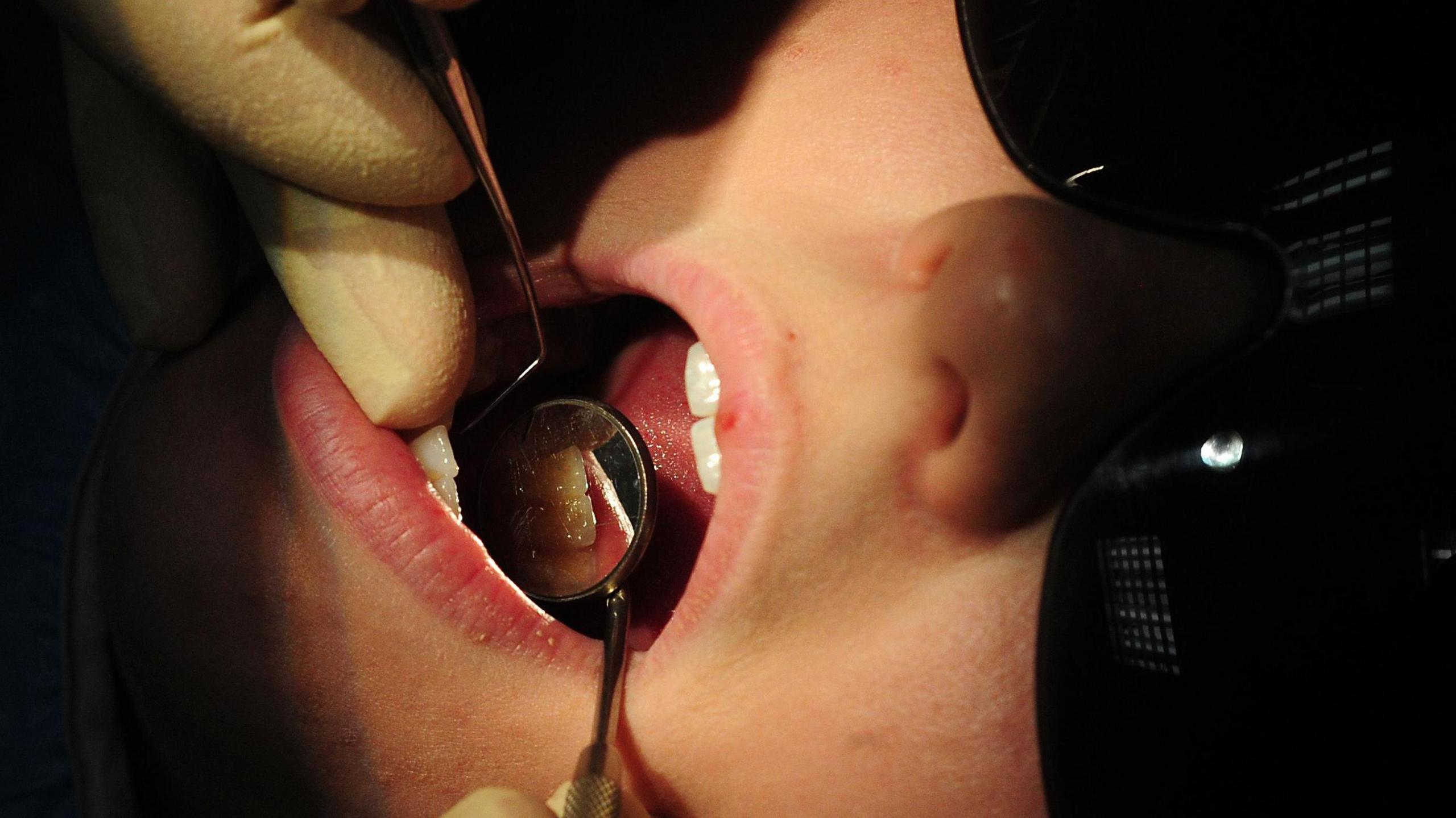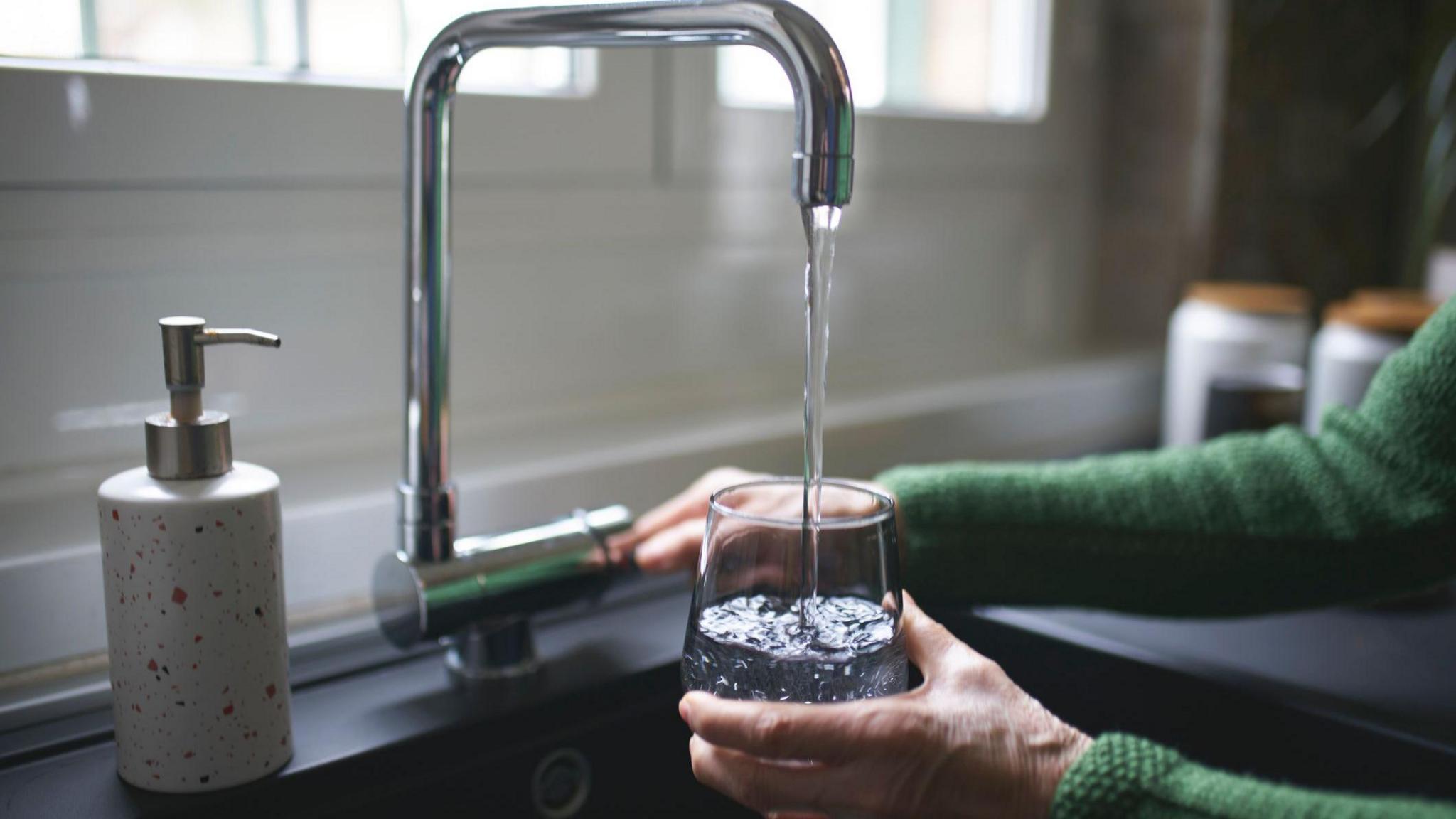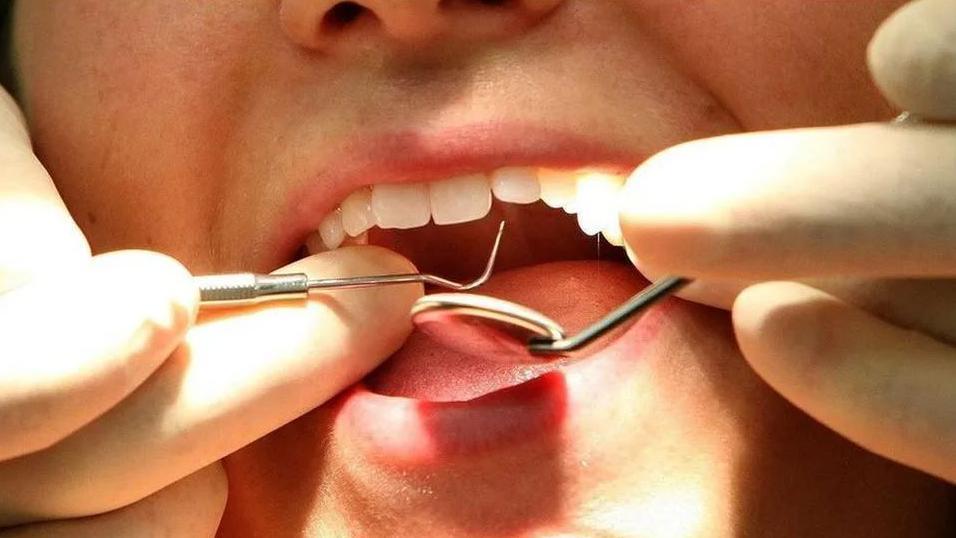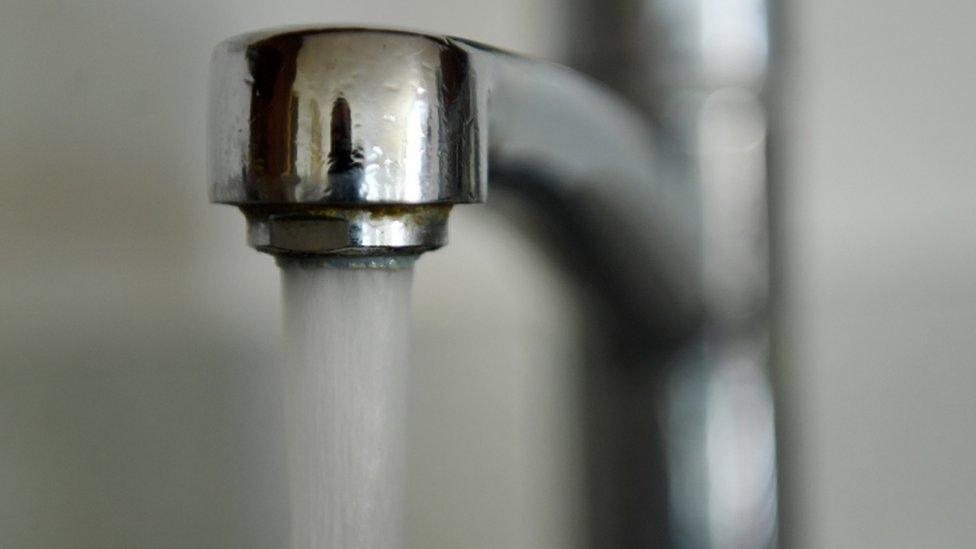Water fluoridation now 'less effective'

The benefits of fluoridating water appear to have declined since fluoride toothpaste became widely available
- Published
Adding fluoride to water may be less effective than it was, a review has concluded.
It comes as the government considers whether to expand fluoridation in north-east England.
Academics said studies before 1975 showed a "clear clinical benefit" but studies since then showed only a "modest" one.
They said the advantage now for children was only a "quarter of a tooth" not decayed, missing or filled on average.
Fluoride is a naturally occurring mineral which protects teeth against decay.
Northumbrian Water has supplied artificially fluoridated water since the late 1960s to Chester-le-Street, Consett, and Stanley in County Durham, Alnwick, Hexham and Cramlington in Northumberland, and parts of North Tyneside, Newcastle and Gateshead.
The Department for Health and Social Care (DHSC) wants to expand the scheme, external to Darlington, Durham, Hartlepool, Middlesbrough, Redcar and Cleveland, South Tyneside, Stockton, Sunderland and the areas not covered in Gateshead, Newcastle, Northumberland and North Tyneside.
'Benefits may take years'
The research into the efficacy of fluoridation was conducted by experts from the Universities of Manchester, Aberdeen and Dundee.
The University of Manchester's Prof Anne-Marie Glenny, co-author of the paper, said the new data could "inform policymakers".
"Water fluoridation is only having a modest benefit, and those benefits may take years to be realised," she said.
Dr Lucy O'Malley, also from the University of Manchester, added: "Before introducing a new fluoridation scheme, careful thought needs to be given to costs, acceptability, feasibility and ongoing monitoring."
The British Dental Association said the new evidence had not changed its assessment that community water fluoridation was a safe and effective public health intervention and should form part of a package of measures to improve oral health.
Ministers are expected to respond "in due course".
Follow BBC North East on X, external, Facebook, external, Nextdoor, external and Instagram, external. Send your story ideas to northeastandcumbria@bbc.co.uk.
More stories from BBC North East and Cumbria
- Published5 May 2024

- Published8 March 2024

- Published6 April 2022
